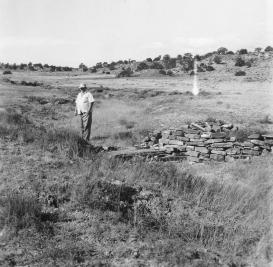This working group, led by Etienne Benson, interrogates the often taken-for-granted connections between environment, science, and crisis. The group emerged from conversations among scholars in the department working on a diverse set of environmental topics, including Indigenous agricultural knowledge, climate change, pesticide toxicity, erosion control, climate change, groundwater extraction, and occupational noise exposure. Those conversations made it clear that, within mainstream environmental discourse, an environment not in crisis has become almost unthinkable, as have “solutions” to environmental crisis in which science does not play a central role. In this context, talk of crisis has powerful political and epistemological effects, determining which kinds of knowledge are seen as legitimate and necessary (or illegitimate and unnecessary).
Drawing on insights from postcolonial studies, the history of knowledge, the environmental humanities, and crisis and disaster studies, the group aims to suspend the assumption that the environment is in crisis—that is, to “unknow” environment crisis—so that the concept can be critically examined and alternative conceptualizations and historical trajectories can be brought into the foreground. In concrete terms, that means that members of the working group seek to understand how the idea of an environmental crisis has been adopted, adapted, or rejected in a variety of contexts in the twentieth and twenty-first centuries, while also attending to the ways that supposed crises are described by the people who are most directly affected by them. Each project focuses on a different locality—including sites in Peru, Germany, the United States, and India—while also drawing links to international institutions, transnational connections, and globally disseminated ideas.

